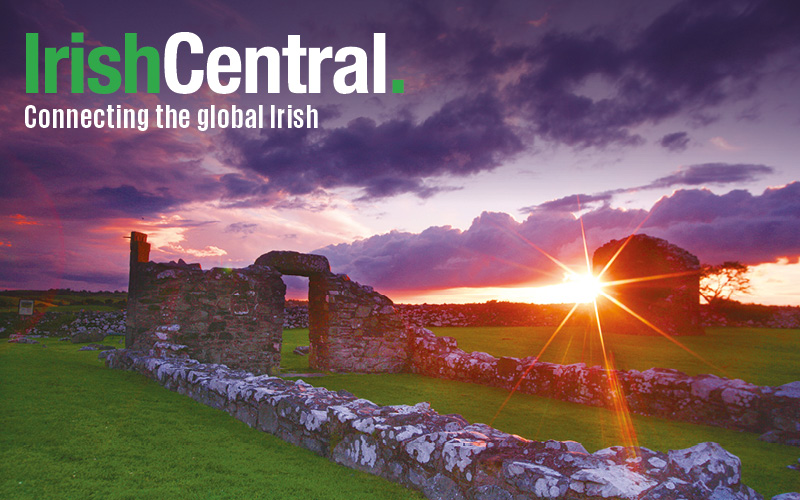Britain’s Prime Minister Theresa May has pledged to prioritize an open border between the Republic of Ireland and the United Kingdom in upcoming negotiations with the European Union.
In her most detailed remarks on the subject to date, May set out her vision for Britain’s relationship with Europe after the UK quits the bloc some time in 2019. In reference to the Common Travel Area (CTA) - as the open border is officially known - she confirmed that the British Government would “make it a priority to deliver a practical solution”.
She continued that, “The family ties and bonds of affection that unite our two countries mean that there will always be a special relationship between us … Nobody wants a return to the borders of the past.”
The speech - although much mooted - was greeted with relief by Dublin and it is understood that Taoiseach (Prime Minister) Enda Kenny was given a heads up in a call with May on Monday night.
In a statement released shortly afterward the Irish Government, they hailed the fact that May, “wishes to secure the closest possible future economic relationship for Britain with the EU, a goal that Ireland shares.”
It also added that they had prepared “extensively” for the negotiations but were under “under no illusion about the nature and scale of the Brexit challenge. But [we are] ready”.
An estimated 23,000 people cross the Irish border every day, over half a million Irish-born citizens live in Great Britain and more than a hundred thousand British citizens live in the Republic. Both once represented the largest foreign-born populations in either country but have been recently overtaken by the growing number of Poles now residing in both jurisdictions and Indian and Pakistani citizens in Britain’s case.
Miss @Theresa_May's #Brexit speech? Here are the highlights in 90 seconds ?? ✂ ??https://t.co/XsmBDWzBlS pic.twitter.com/NCv3Qi3PxU
— BBC News (UK) (@BBCNews) January 17, 2017
The right of British and Irish citizens to live and work with visa restrictions in each others countries was first established shortly after the foundation of the Irish Free State in 1923. Some restrictions were implemented during the Second World War, border checks became routine during the Troubles and now most airlines requests identification but overall the CTA has remained intact.
But although the Irish Government was happy about May’s assurances on the CTA, her confirmation that she wished to leave the European Single Market and Customs Union likely saw much pulling of hairs in Dublin’s Government Buildings this morning.
The announcement means that Britain will leave Europe’s internal market with its so-called “four freedoms”; free movement of goods, capital, labor and services and seek a new trade agreement with the EU without which there would be stricter controls on the rights of non-Irish EU citizens to live and work in the United Kingdom.
May’s plan was dismissed as unachievable by her political opponents and Michael Fuchs, a senior economic adviser to German Chancellor Angela Merkel, said, “We have four freedoms and this is not negotiable – if you have one of them and you don’t want it, it is not possible because I call it cherry picking.”
He also predicted that the EU would have to be “tough” on Britain, to prevent any of the remaining 27 countries quitting the fractious bloc.
.@TimFarron: Theresa May made the choice to do massive damage to the British economy by taking us out of the #SingleMarket pic.twitter.com/0mWzA4JMEd
— Liberal Democrats (@LibDems) January 17, 2017
Nonetheless, May also made clear that she would not sign just any agreement and insisted that the British Government was prepared to quit the EU completely unilaterally if a punitive settlement was the only thing on offer. “No deal for Britain is better than a bad deal for Britain,” she warned.
Her Chancellor (Finance Minister) Philip Hammond has already hinted that in that case he would move quickly to slash taxes and deregulate, turning the British economy into a Singaporean-style tax haven on Europe’s doorstep.
“The British people are not going to lie down and say, too bad, we’ve been wounded. We will change our model, and we will come back, and we will be competitively engaged,” he told a German newspaper earlier this week.
Such an eventuality is the Irish Government’s nightmare scenario as 36% of Irish exports go to Britain and close to $1.3 billion worth of trade is conducted between the two countries every week.
.@Theresa_May has made clear that she is determined to use Brexit to turn Britain into a bargain basement tax haven on the shores of Europe. pic.twitter.com/8LIjz7Y1Hu
— Jeremy Corbyn MP (@jeremycorbyn) January 17, 2017
Cuts to Britain’s tax levels would mean one of Ireland’s key selling points to international business - it’s ultra-low 12.5% rate of corporation tax - would become less attractive overnight. The British rate currently sits 20% but a steep reduction and the ability to give special “sweetheart” deals to certain firms - currently forbidden by the EU’s state aid laws - could mean much fiercer competition between the two island nations in the long-term.
It all adds up for a very fraught negotiation period for the Irish Government. Kenny has already said he expects the next two years to be “vicious” but has cautioned the EU against “losing the plot” and punishing Britain. The Government’s position is that it still expects an agreement that recognizes the “unique circumstances” of the British-Irish relationship.
You can view May's full speech here:




Comments